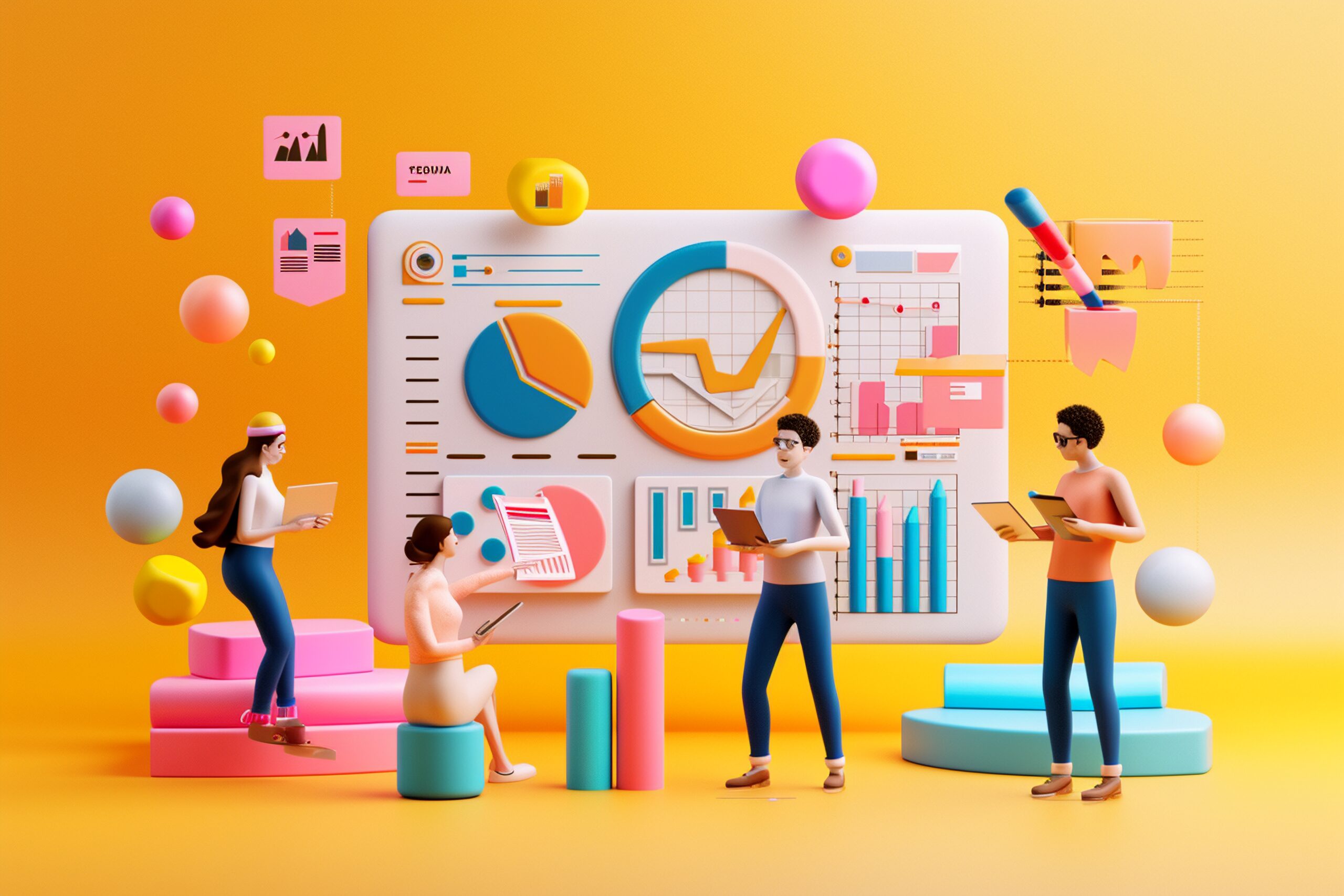How to Create a Profitable AI-Powered Blog: Ranking #1 on Google with AI SEO
In today’s digital landscape, blogging has become a powerful tool for businesses to attract traffic, generate leads, and ultimately, increase revenue. However, with millions of blogs competing for attention, it’s crucial to implement effective strategies to stand out from the crowd. This is where AI SEO comes into play. By leveraging the power of artificial intelligence and search engine optimization, you can create a profitable AI-powered blog that ranks #1 on Google and generates substantial income.
We strongly recommend that you check out our guide on how to take advantage of AI in today’s passive income economy.
Table of Contents
The Importance of Keyword Research in AI SEO
Before diving into content creation, it’s essential to conduct thorough keyword research. This process involves identifying the right keywords to target based on their relevance, search volume, and competition level. By focusing on keywords with high buying intent and reasonable competition, you can optimize your AI SEO efforts and attract qualified traffic to your blog.
To find the right keywords, start by creating a keyword matrix. This matrix should consider factors such as buying intent and traffic potential. Prioritize keywords that fall into the high buying intent and low-to-medium competition quadrants. These keywords are more likely to convert visitors into customers, maximizing your blog’s profitability.
Producing ROI-Positive Content with AI SEO
Once you have identified your target keywords, it’s time to create content that satisfies user search intent and drives conversions. AI SEO tools can help you generate engaging, high-quality content that resonates with your audience and ranks well on search engines.
When creating content, focus on providing value to your readers. Use a clear structure, including a compelling title, meta description, subheadings, and bullet points. Incorporate relevant images, videos, and internal and external links to enhance the user experience and establish your blog as an authoritative resource in your niche.
Optimizing Content for AI SEO and Sales
To maximize the ROI of your AI-powered blog, it’s crucial to optimize your content for both AI SEO and sales. This involves incorporating relevant keywords naturally throughout your articles, as well as including strategic calls-to-action (CTAs) that encourage readers to take desired actions, such as making a purchase or signing up for a newsletter.
When creating CTAs, consider the buyer’s journey and the intent behind the keywords you’re targeting. For top-of-the-funnel content, focus on providing value and nurturing leads, while bottom-of-the-funnel content should be more direct in encouraging conversions.
The Importance of Brand-Tailored Content in AI SEO
To establish a strong online presence and build trust with your audience, it’s essential to create brand-tailored content. AI SEO tools can help you generate content that aligns with your brand’s voice, tone, and values, ensuring a consistent experience for your readers.
By connecting your AI SEO tool with your brand’s assets, such as your website, social media profiles, and existing content, you can create a cohesive brand identity that resonates with your target audience and sets you apart from competitors.
Monetizing Your AI-Powered Blog
There are various ways to monetize your AI-powered blog, including:
- Affiliate marketing
- Sponsored content
- Digital products
- Coaching or consulting services
- Advertising (e.g., Google AdSense)
To maximize your blog’s profitability, consider diversifying your income streams and experimenting with different monetization strategies. AI SEO can help you identify lucrative opportunities and optimize your content accordingly.
Leveraging International Markets with AI SEO
One powerful strategy for scaling your AI-powered blog is to target international markets. By creating localized content in different languages and optimizing for country-specific keywords, you can tap into new audiences and expand your reach.
AI SEO tools can help you automate the process of creating multi-lingual content, saving you time and resources while ensuring high-quality translations and localization.
The Role of AI SEO in Off-Page and Technical Optimization
While AI SEO is primarily focused on on-page optimization, it’s important to remember that off-page and technical factors also play a crucial role in your blog’s success. Off-page optimization involves building high-quality backlinks from authoritative sources, while technical optimization focuses on improving your blog’s speed, mobile-friendliness, and overall user experience.
AI SEO tools can help you identify link-building opportunities and monitor your blog’s technical health, ensuring that your content is well-positioned to rank higher on search engine results pages (SERPs).
Conclusion
Creating a profitable AI-powered blog requires a strategic approach that combines keyword research, content creation, optimization, and monetization. By leveraging the power of AI SEO, you can streamline your blogging efforts, attract qualified traffic, and ultimately, increase your revenue.
Remember, AI SEO is not a replacement for human expertise and creativity. Instead, it’s a powerful tool that can help you work smarter, not harder, and achieve your blogging goals more efficiently. By staying up-to-date with the latest AI SEO trends and best practices, you can create a sustainable, profitable blog that ranks #1 on Google and generates substantial income for your business.
FAQs:
What is AI for SEO?
AI for SEO refers to the use of artificial intelligence technologies to optimize websites and content for search engines. AI algorithms can analyze vast amounts of data, identify patterns, and provide insights to improve search engine rankings. AI SEO tools can help with keyword research, content creation, on-page optimization, and even off-page factors like link building. By leveraging AI for SEO, businesses can streamline their optimization efforts and achieve better results in less time.
Can SEO be replaced by AI?
While AI is transforming the SEO landscape, it’s unlikely to replace SEO entirely. AI SEO tools can automate many tasks and provide valuable insights, but they still require human input and strategic decision-making. SEO professionals need to interpret data, understand user intent, and create engaging content that resonates with their target audience. AI can enhance and streamline SEO efforts, but it cannot replace the creativity, empathy, and critical thinking that human experts bring to the table.
How to use ChatGPT for SEO?
ChatGPT, a large language model developed by OpenAI, can be a valuable tool for SEO. You can use ChatGPT to:
- Generate content ideas and outlines
- Create meta descriptions and title tags
- Summarize long-form content
- Answer frequently asked questions
- Provide insights on user intent and search behavior
To use ChatGPT for SEO, start by identifying your target keywords and topics. Then, input prompts related to your keywords and let ChatGPT generate relevant content. Remember to review and edit the generated content to ensure it aligns with your brand voice and SEO goals.
Is AI content SEO friendly?
AI-generated content can be SEO-friendly if it’s created with best practices in mind. To ensure your AI content is optimized for search engines, follow these tips:
- Use relevant keywords naturally throughout the content
- Structure the content with clear headings, subheadings, and paragraphs
- Include internal and external links to authoritative sources
- Optimize meta descriptions, title tags, and image alt text
- Ensure the content is original, valuable, and engaging for readers
Keep in mind that search engines prioritize high-quality, user-friendly content. While AI can help generate content quickly, it’s essential to review and refine the output to meet SEO standards and provide a positive user experience.

We strongly recommend that you check out our guide on how to take advantage of AI in today’s passive income economy.




